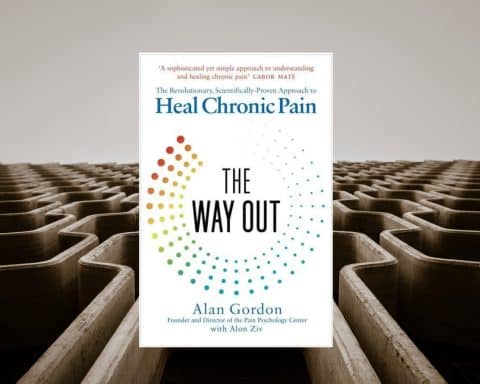 Julia Darko is a GP Specialty Trainee and Academic Clinical Fellow in General Practice at Kings College Hospital. She is on Twitter: @DrJuliaDarko
Julia Darko is a GP Specialty Trainee and Academic Clinical Fellow in General Practice at Kings College Hospital. She is on Twitter: @DrJuliaDarko
The evidence is clear: Black and Asian minority ethnic groups in the UK have experienced poorer outcomes in relation to the COVID-19 pandemic. People of Black and Asian ethnicity have faced higher diagnostic rates, higher intensive care admission rates and ultimately higher death rates compared to the White population.1-3 Despite comprising the minority of the workforce, Black and Asian healthcare staff make up approximately two thirds of the deaths observed in this setting.4
Despite comprising the minority of the workforce, Black and Asian healthcare staff make up approximately two thirds of the deaths.
In the light of the statistical evidence, there have been increasing calls amongst experts for the government to categorise Black and Asian ethnicity as “extremely vulnerable” and ensure these groups are next in the priority line for the COVID-19 vaccine.5 Nevertheless, action to address the growing prevalence of COVID-19 vaccine hesitancy in Black and Asian communities appears to be feeble.
A recent publication by the Scientific Advisory Group for Emergencies (SAGE) regarding data from the UK Household Longitudinal Study suggests that Black ethnic groups are the most COVID-19 vaccine hesitant, followed by the Pakistani and Bangladeshi groups.6 72% of Black participants expressed being unlikely or very unlikely to accept the vaccine. For the Pakistani and Bangladeshi groups, it was 42%.6
Black ethnic groups are the most COVID-19 vaccine hesitant, followed by the Pakistani and Bangladeshi groups.
The most likely explanation for this disparity appears to be centred around trust, or rather the lack of it. Previous research has highlighted the important role that trust in government institutions plays in fostering vaccine confidence.6 It is evident that vaccine hesitancy is yet another symptom of the pathology of historical marginalisation, structural racism, systematic discrimination and under-representation in health research.
Until society … is committed to undoing the longstanding damage of historical discrimination and disempowerment, trust will not be restored.
In response to this challenge, scientific and government experts have suggested improving trust and confidence in the COVID-19 vaccine through increased community partnership strategies such as deploying community champions to promote local engagement.6 Unfortunately, such initiatives will fail to deliver the necessary results because there is an even bigger elephant in the room which continues to be ignored. Until society, led by its government, is committed to undoing the longstanding damage of historical discrimination and disempowerment, trust will not be restored. Minority ethnic groups that have been perpetually disenfranchised, should not be expected to readily forsake a lack of trust in the authorities that have caused them to face longstanding injustices with regards to health, education, wealth, freedom and safety. To presume that the symptoms of deeply rooted historical trauma can be overcome simply through the dissemination of several well-meaning grassroots projects is to be ignorant of the magnitude of the problem and the scale of the solution it requires.
If the UK government wishes to tackle the disproportionate risk of COVID-19 infection amongst ethnic minority groups, it cannot delay in spearheading wide-reaching structural change to pave the way for truly equitable societal norms and practices. Only then can meaningful trust grow and vaccine hesitancy wane.
References
1. Public Health England. Disparities in the risk and outcomes of COVID-19. PHE.2020.
2. Intensive Care National Audit & Research Centre. ICNARC report on COVID-19 in critical care. ICNARC. 2020.
3. Harrison EM, Docherty AB, Barr B et al. Ethnicity and outcomes from COVID-19: the ISARIC CCP-UK prospective observational cohort study of hospitalised patients. Social Science Research Network. 2020.
4. Cook T, Kursumovic E, Lennane S. Exclusive: deaths of NHS staff from COVID-19 analysed. Health Service Journal. 2020. https://www.hsj.co.uk/exclusive-deaths-of-nhs-staff-from-covid-19-analysed/7027471.article.
5. Razai MS, Kankam HKN, Majeed A et al. Mitigating ethnic disparities in covid-19 and beyond. British Medical Journal. 2021; 372: m4921.
6. Scientific Advisory Group for Emergencies. Factors influencing COVID-19 vaccine uptake among minority ethnic groups, 17 December 2020. 2021. https://www.gov.uk/government/publications/factors-influencing-covid-19-vaccine-uptake-among-minority-ethnic-groups-17-december-2020
Paired articles:
Tolerating a difference of opinion. Samar Razaq
And linked article in BJGP:
Harnden A, Lim W and Earnshaw A. COVID-19 vaccination programme: a central role for primary care. BJGP 25 January 2021; bjgp21X714929. DOI: https://doi.org/10.3399/bjgp21X714929
Featured photo by Joshua Hoehne on Unsplash







[…] Addressing the elephant in the room: COVID-19 vaccine hesitancy in Black and Asian communities. Juli… […]
[…] Addressing the elephant in the room: COVID-19 vaccine hesitancy in Black and Asian communities. Juli… […]